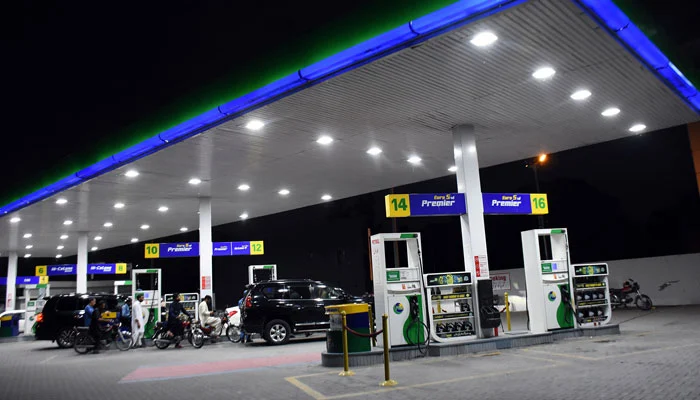- Next petrol price review due on Feb 15.
- PDL may also be increased on diesel.
- Sharp increase in POL prices is expected.
KARACHI: The prices of petrol may witness a surge of Rs20 per litre in the next two weeks’ review — which is to be held on February 15, 2023, The News reported on Tuesday.
This recent uptick in petrol price was based on the calculations of the international price of petrol i.e. free on board (FOB) basis, oil industry sources told the publication.
The government had carried out a massive increase of Rs35 per litre in the last fortnightly review of fuel prices. Currently, the government is charging Rs50 per litre petroleum levy (PL) whereas general sales tax (GST) has not been imposed yet.
The price of petrol may further increase provided the foreign exchange rate was adjusted in the next review, the sources mentioned.
They further said that the exchange rate was on the higher side, which would deprive the local consumers of any benefit or reduction in the prices of petroleum products.
The prices of petrol in the international market have decreased, but the steep depreciation of the rupee against the dollar has eroded the gains to detriment of domestic consumers.
The sources also added that the petrol price might go up even further if the government adjusted Rs20 per litre on account of the exchange rate as well, which would cumulatively take the price by up to Rs40 per litre.
On the other hand, diesel price was not reflecting any increase on FOB sans exchange rate adjustment. The sources said that if the exchange rate was adjusted, diesel prices could go up in the next review.
The government had adjusted Rs14 per litre on diesel on account of the exchange rate; however, the steep appreciation of the dollar has eaten up the exchange rate adjustment of the last review.
They noted that diesel prices went down by five to six dollars per barrel in the global market, but rupee depreciation would not allow the government to pass on this reduction in global prices to local consumers.
The last increase in prices of petroleum products was made in the review on January 29, 2021, by the federal government. After the review, petrol price was tagged at Rs249.80 per litre; high-speed diesel Rs262.80 per litre; kerosene oil Rs189.83 per litre; and light-speed diesel Rs187 per litre.
On January 29, 2023, the government increased the prices of petrol and high-speed diesel by Rs35 per litre each and the rates of kerosene oil and light diesel oil were increased by Rs18 per litre each.
Pakistan is currently facing a short supply of petrol, with its most populous province, Punjab bearing the brunt of the crisis. Major and smaller cities, towns and villages in Punjab do not have the fuel, which was also being blamed on petroleum dealers.
Last week, sources had said that other than the low import of petrol by a majority of Oil Marketing Companies (OMCs), petroleum dealers were having a field day and were involved in the hoarding of petrol in view of the expected increase in prices by mid-February.

 Entertainment2 days ago
Entertainment2 days ago
 Latest News1 day ago
Latest News1 day ago
 Latest News1 day ago
Latest News1 day ago
 Latest News1 day ago
Latest News1 day ago
 Latest News1 day ago
Latest News1 day ago
 Entertainment2 days ago
Entertainment2 days ago
 Latest News1 day ago
Latest News1 day ago
 Latest News1 day ago
Latest News1 day ago
























